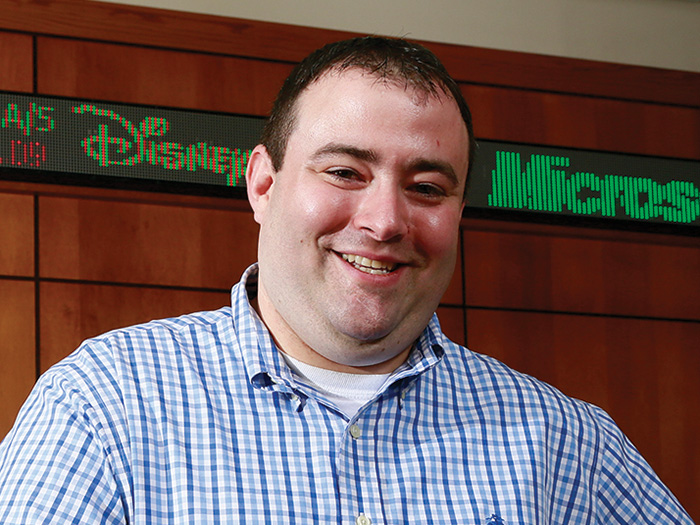Legal Roundup: McKinsey Settles Opioid Claims, Authors Sue OpenAI and More

McKinsey Settles Opioid Claims for $230 Million
The Case: Consulting giant McKinsey & Co. found itself in legal scrutiny due to allegations that it significantly contributed to the nation’s opioid crisis.
The firm, which is globally recognized for its consulting work, faced a multitude of lawsuits by hundreds of local governments and school districts. They argued that McKinsey played a pivotal role in the opioid epidemic due to its advisory work for OxyContin manufacturer Purdue Pharma and other pharmaceutical companies.
McKinsey’s alleged involvement centered on its assistance in devising marketing strategies for these companies, which purportedly downplayed the risks and consequences of opioid consumption, ultimately boosting the sales of these painkillers.
Scorecard: McKinsey agreed to settle the lawsuits for a sum of $230 million, according to Reuters. The settlement comes after the company paid a previous settlement of $641.5 million to various state attorneys general. Reuters reported that the company “said it continued to believe its past work was lawful. It also noted it had committed in 2019 to no longer advise clients on any opioid-related business.”
Takeaway: The McKinsey settlements underline the widening scope of accountability in the opioid crisis, which has extended from pharmaceutical companies to doctors to pharmacies — and now marketing consultants. Even if a company is not the primary actor, indirect involvement in a crisis can lead to substantial legal repercussions.
Atlantic City Casino Continues Fight for Pandemic Business Interruption Coverage
The Case: The battle for pandemic business interruption coverage rages on. Ocean Casino Resort in Atlantic City has sued three major insurance providers — AIG Specialty Insurance Co., American Guarantee & Liability Insurance Co. and Interstate Fire & Casualty Co. — after they declined payouts to the resort despite $50 million in business interruption coverage.
The insurers say viruses are excluded from the policy and that the resort did not undergo any direct physical harm or damage due to the virus, according to the Press of Atlantic City. While this case is specific to New Jersey, its implications echo across many similar cases nationwide, prompting other businesses to watch closely.
Scorecard: The casino won an initial round in court, successfully fending off the insurers’ bid to toss out the case. However, the victory was short-lived, as an appellate court later overturned this decision. Now, the case is in the hands of New Jersey’s Supreme Court, according to the Press of Atlantic City.
Takeaway: The case is emblematic of the broader legal challenges businesses face as they try to recoup funds lost during the pandemic: One sticking point is physical property loss or damage. Lawyers representing the insurance companies argue that their policies necessitate visible, tangible damage to property to warrant a payout.
However, Ocean Casino Resort counters this by emphasizing the pervasive fear and potential presence of the virus on surfaces and in the air within the establishment, making it dangerous. Others have tried similar arguments, and we’ll see how courts will ultimately decide. The fact that multiple state Supreme Courts have held that mere business interruption due to the pandemic doesn’t equate to physical losses sets a challenging precedent for businesses like Ocean Casino Resort.
John Grisham, More Authors Sue OpenAI
The Case: Renowned authors such as John Grisham, George R.R. Martin, Jodi Picoult and several others are part of a lawsuit alleging that OpenAI unlawfully incorporated their literary works into the training process of ChatGPT, according to Reuters. The lawsuit by the Authors Guild, a trade group representing writers, mirrors a rising wave of litigation in which creators — be they writers, artists or code developers — are questioning the legality of generative AI providers using copyrighted content for AI training.
Scorecard: Is it a violation of copyright law for artificial intelligence tools like OpenAI to be trained on books without permission from the author or publisher? This case and others like it have not yet come to resolutions.
Takeaway: Many writers not only want AI applications to stop using their material without permission but also fear that AI will eventually take jobs from writers. The lawsuit against OpenAI by the Authors Guild underscores several noteworthy implications, including the definition of “fair use.”
The outcome of this lawsuit could provide significant insights into how fair use is perceived and defined in the context of AI training. Also, as AI models become more sophisticated and integrate diverse data types, intellectual property rights will come into focus. Creators like authors or artists will likely demand clearer boundaries and guidelines on AI’s use of their work.
Johnson & Johnson, IBM Face Data Breach Lawsuit
The Case: After being notified of a data breach involving her health information, Elaine Malinowski sued Johnson & Johnson and IBM in a proposed class action, according to FiercePharma.
The case centers around a data breach in J&J’s patient assistance program, Janssen CarePath, managed by IBM. The complaint alleges that both entities failed to protect personal identity and health data, as mandated by the Health Insurance Portability and Accountability Act. The compromised information includes names, contact details, birth dates, medications and related health conditions. Sensitive information like Social Security numbers and bank accounts were not part of the breached data.
Scorecard: The case has recently been filed and has not yet reached a resolution.
Takeaway: The lawsuit against J&J and IBM holds significant implications for companies in health care and beyond. The increasing frequency of data breaches, especially in health care, underscores the need for enhanced security measures. Patient data, due to its sensitivity, demands stringent protection mechanisms.
Also, history has shown that data breaches can culminate in hefty settlements. FiercePharma cited recent examples such as a $500 million T-Mobile settlement, a $425 million Equifax settlement, and Scripps Health paying a $3.6 million settlement. &









